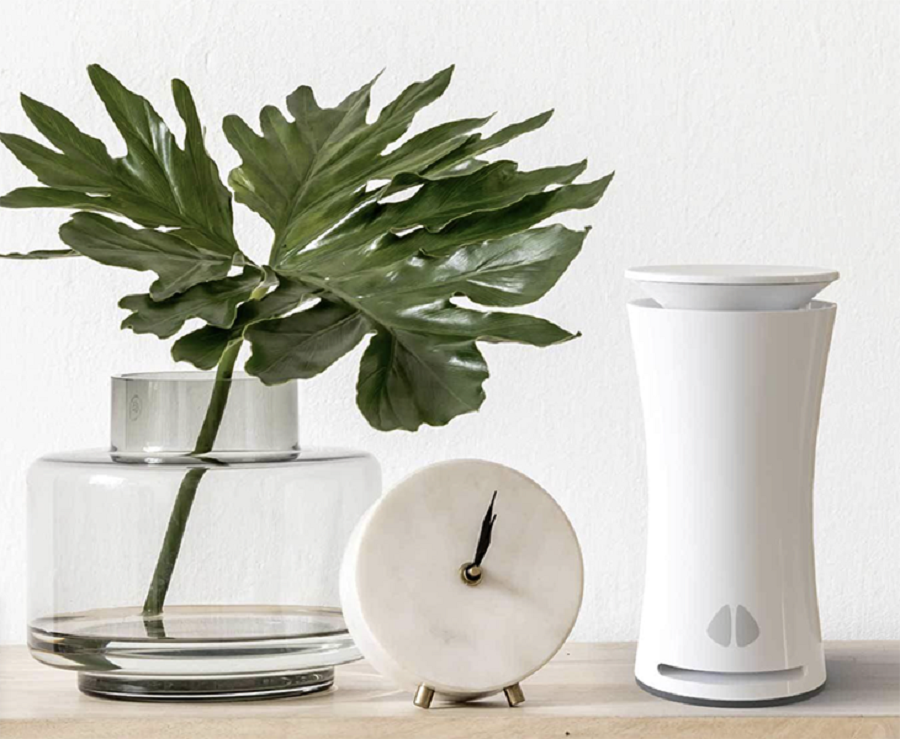
Product of The Month: uHoo Monitoring Your Air Quality
During a recent Luxury Living Podcast, a discussion came up about Air Quality and how to measure it. The team suggested using an air quality monitor. At BRAVAS, our indoor air quality consultants wondered what the experience would be like to use one of these monitors for a month. The one we chose was the uHoo Indoor Air Quality Sensor – 9 in 1 Smart Air Monitor. You can find more detailed reviews on the web about uHoo, but we thought we would share some of our insights after using it for a month.
The Air That You Breathe
“Sometimes,” as the Hollies once said, “all I need is the air that I breathe and to love you.” Knowing the quality of air in your home is a significant step towards protecting those that you love. Among the many good air benefits are better sleep, fewer allergies, less fatigue, sharper minds, and fewer headaches. The problem is that while we all feel some of these, how do we know if it’s the air or something else? That’s where the uHoo comes in. While it does not clean your air, it does tell you what is in the air you are taking into your lungs.
The uHoo is around 6 inches high and about 3 inches in diameter and sits easily on any shelf or surface. It is effortless to install and simple to operate. Once you have the app on your phone, you will see readings from the 9 sensors.
These nine sensors are:
- Temperature
- Relative Humidity
- Air Pressure
- Carbon Dioxide (CO₂)
- Airborne Chemicals (VOCs)
- Dust (PM5)
- Carbon Monoxide (CO)
- Nitrogen Dioxide (NO₂)
- Ozone (O₃)
The numbers show green, orange, or red, depending on the results the sensors are reading. The display also gives you a Virus Index reading between 1 and 10 – where 1 is good and 10 is bad. This is meant to be a combination snapshot between all the sensors.
Real World Use
We tested the unit in a 48th-floor condo in a new high-rise building. In actual use, the Virus Index didn’t seem to be much use as it jumps to 10 when any two sensors are not green. Given the winter month, the fact that this can happen when temperature and humidity felt meaningless. This index feels like it needs more work. What was much more interesting were the results from the sensors themselves.
Those readings are available as real time numbers or results in graphs over the hour, day, or month. We never saw any real reading for carbon monoxide, nitrogen dioxide (NO₂) and ozone (O₃) – which is probably a good thing. What we did notice is the changes in Carbon dioxide (CO₂), airborne chemicals (VOCs) and dust (PM2.5) depending on what we did. Cooking or frying causes the numbers to spike, for instance. We have been very concerned about the amount of dust in the new apartment, and seeing this timeline helps us to start to isolate activates that might be increasing the dust in the air.
Given how easy the unit is to use, means that it is easy to move. We now plan to move the unit from room to room to see if the results are different.
Don’t Panic – Talk to Our Air Quality Consultants!
After about a month with the unit, our view is that we need nothing much to do in the home, but we have decided to implement two changes. First, we use a Coway AP-1512HH HEPA Air Purifier in the kitchen, and the second is a LEVOIT Humidifier for the main living area. We may add a smaller humidifier to the master bedroom when we have finished testing the area. Of course, these are small units for a 1,400 square foot apartment. In bigger homes and spaces, BRAVAS can help you select devices that will better serve your needs. We can also help you get and set up a uHoo if that helps.
COVID has made us all sensitive to air quality, and on the whole the uHoo cannot test for that. At some point, we will move on from COVID and start thinking about other things that were maybe limiting our sleep or impact our family—knowing what the air is like in your home may be something that could help with that. Contact our indoor air quality consultants today to learn more!











